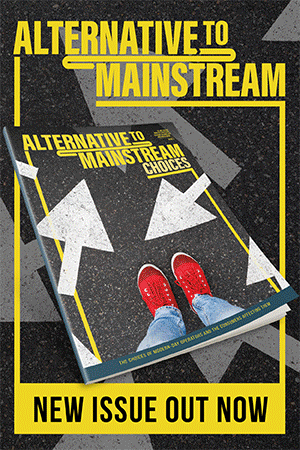MacPac Ltd on the war on plastic

Macpac Ltd is a privately owned thermoforming manufacturer, and supplier of trays & clam packs using primarily R-PET (recycled PET) to some of the largest bakery houses including smaller artisan bakeries and retailers. Here, they give us their take on the war on plastic.
"As a designer and manufacturer of plastic packaging we feel that certain media outlets have an agenda when it comes to the plastics discussion. This is clouding the debate and not giving the consumer a fair and balanced view on the topic to make a sensible and balanced decision. Plastics especially RPET has a lot of positives for it to be used in packaging, the debate should be “war on waste” & not “war on plastic”.
PET plastic accounts for 0.32% of the world’s oil consumption. When considering that RPET is typically made up of 80% recycled materials then the percentage of virgin materials used drops to 0.06%.
Less carbon is emitted during production of RPET than when glass or aluminium is produced. RPET and paper emit similar levels of carbon during production, but RPET uses much less water.
Plastic is lighter and takes up less space than other alternatives, therefore during transportation of plastic packaged goods fewer emissions are produced compared to alternatives. It also takes less energy to recycle RPET compared to alternatives, the actual amount of energy required to recycle plastic and remanufacture being less compared to glass, aluminium, and paper.
Of the selected materials used by Macpac over 97% is exclusively R-PET, the most efficiently recyclable and cost-effective material available.
Plastic packaging not only protects the products in transit but also preserves the shelf life and appeal in store. This is why it is so hard for users to find sensible alternative materials and illustrates why the “war on plastics” hashtag is too misleading.
As a company we are designing for recyclability and working with our customers to make sure the packaging that reaches the consumer is fully recyclable. By optimising pack sizes at the design stage, reducing packing weight by down gauging and incorporating design features to allow this, we are offering the customer all options to give them the most efficient sustainable packaging format possible.
RPET is accepted to be the most recyclable of plastics used in the world today.
RPET is typically made up of a mixture of Post-Consumer Recylate (PCR) and Post Industrial Recyclate (PIR)
Macpac uses a blend with at least 80% recycled content which is made up of our own recylate which we granulate on site and return to our extrusion partners who use this to supplement the post-consumer waste (water bottles etc) to make up the material that we use over and over again.
There are big changes on the horizon relating to EPR / DRS or Plastic tax legislation which will affect all companies who handle packaging whether it be plastic, board, or metal.
Over the coming months we will be sending out regular newsletters, to keep customer and subscribers updated with all the latest developments as the legislation is implemented. Our sustainability team will also keep all our clients regularly up to date with factual newsletters explaining the latest developments in legislation.
In the meantime, Macpac has launched an ambitious sustainability drive focusing on key objectives which can be viewed on the Macpac website.
The compostable element
There is definite consumer appetite for packaging that is biobased and/or compostable, but I think there is a lot of confusion around what these terms mean especially with respect to biodegradable plastics.
Although compostable plastics are biodegradable, not all biodegradable plastics are compostable. EU regulatory definitions for biodegradable materials exist, however the term ‘biodegradable’ is often misused and applied to a broad range of materials. Environments such as soil, fresh or marine water are uncontrolled, and therefore the timeframe for a material to biodegrade in them varies greatly. Without a specified environment or timeframe, the term ‘biodegradable’ can be misleading and is not an assurance that a material will biodegrade within a reasonable timeframe.
PLA plastics are plant-derived plastics that are now used extensively in food packaging and often labelled as ‘biodegradable’, ‘compostable’ or ‘recyclable’ alternatives to typical polymers. While technically these materials may be any of the above, and thus they can be advertised as such, the specialised recycling services required are not always available to consumers.
Consequently, PLA plastics, which may state they are recyclable, often do not have a recovery pathway as the infrastructure is currently not well established for compostable plastics. This is why it is so important that the recycling chain catches up with the good work that manufacturers are doing in using fully recyclable plastics.
We are finding clients are reluctant to justify the price premiums for alternative materials such as PLA or even board or other materials. In a highly competitive industry customers are more focused on the right material choice, recycled content, weight down-gauging and ability to be recycled.
For more information visit www.macpac.co.uk





